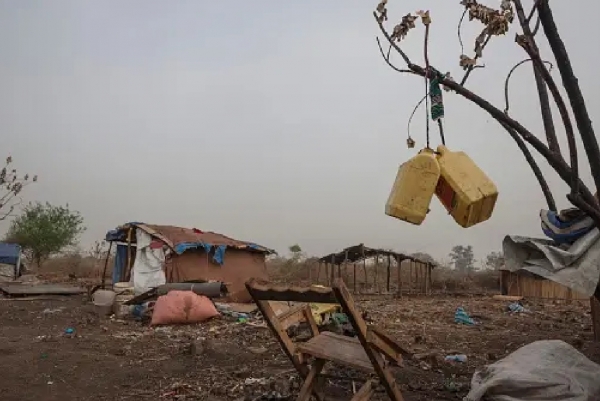As highlighted by UNDP, South Sudan is facing an escalating crisis marked by conflict, climate change, displacement, and soaring living costs, pushing millions of its people to the brink.
Recent projections reveal alarming statistics, with approximately 7.1 million out of South Sudan's 12.4 million population expected to endure crisis-level hunger during the upcoming lean season, starting in a month.
Nine million individuals will require humanitarian assistance this year, half of whom are children. Less than one in ten have access to electricity, while 70 percent lack basic healthcare services.
According to WHO, Throughout the civil war and since gaining independence from Sudan in 2011, South Sudan has experienced high levels of violence and unrest. Despite a period of relative stability, more than 7 million people still need humanitarian assistance across South Sudan due to the cumulative effects of years of conflict, chronic vulnerabilities and weak essential services.
Hunger threatens over half of the population.
Almost 4 million people remain displaced by the crisis, either as refugees or internally displaced persons.
Like several countries devastated by war and internal conflicts, South Sudan also has to face the huge problem of unexploded mines and still contaminated territories.
As reported by United Nation Mission in South Sudasn (UNMISS), in Amadi, a village located a few kilometres from South Sudan’s capital, Juba, local communities used to live in fear.
Unexploded ordnance, a reminder of past civil wars, littered their ancestral lands making farming impossible and posing risks to women, children, and men as they went about their daily tasks.
The United Nations Mine Action Service, however, responded quickly and efficiently, once community members alerted them about their dire situation.
“Over the last year, our deminers have been actively involved in clearing Amadi of all explosive hazards,” reveals Zehrudin Sukanovic, Acting Chief of UNMAS. “So far, we have managed to identify and safely destroy 23 dangerous items,” he adds.
Despite the numerous actions that are being carried out on different levels: humanitarian aid, the containment of the cholera epidemics that periodically break out in the country and more specific actions such as the demining of some territories, the general situation of the country remains critical.
South Sudan’s current situation is an example of the so-called reverberating effects of conflicts that involve various sectors of the daily life and well-being of the South Sudanese civilian population.
To lean more, read:
https://www.who.int/emergencies/situations/south-sudan-crisis
https://unmiss.unmissions.org/unmas-clearance-makes-ground-safer-communities-amadi







